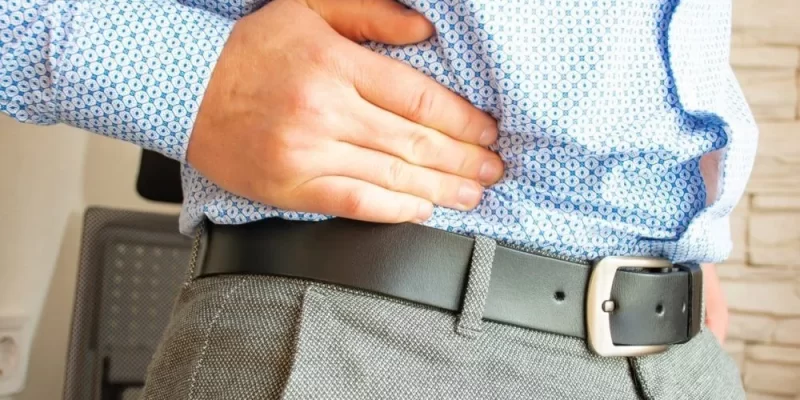A hernia is a painless lump or bulge that can appear anywhere within the abdomen, groin, scrotum, and thigh. It results from an organ protruding through a weakness in the abdominal muscles.
The most common types of hernias are inguinal (groin area), femoral (upper inner thigh), umbilical (navel area), and incisional (from surgery). If you’re diagnosed with hernia or your GP thinks that you could be dealing with a case of hernia, you may be advised to see a general surgeon like Dr. Ganesh Ramalingam in Singapore.
Back to the types of hernias, a direct inguinal hernia occurs when tissue containing fat or part of the small intestine pushes through a weak spot or tears close to where the thigh joins the trunk. This causes swelling near your groin.
An indirect inguinal hernia occurs when fatty tissue or part of your large intestine bulges under your stomach wall towards your scrotum. This causes swelling near your groin. An abdominal hernia occurs when the intestines or fatty tissue bulges through weak spots in your lower abdomen. Risk factors that can increase your chances of developing a hernia include:
- Increase in age
- Obesity
- Previous surgery
- Repetitive heavy lifting
The symptoms associated with hernias include: a lump or bulge felt in the groin, scrotum, or other areas where there shouldn’t be one, and tenderness and pain around the affected area. Hernias aren’t always easy to spot because they often cause no pain and only become apparent when you cough, strain, or stand up suddenly. Sometimes, it’s possible to push them back into place, but if you do this too often, they can become more permanent.
If left untreated, hernia symptoms may increase in severity and include:
- Sharp pain during bowel movements or coughing
- Upper abdominal pain that appears when you’re not moving around much (for example, at night), which passes quickly when you stand up
- Hernias that are getting bigger (swollen)
- A visible lump or swelling
- Tenderness
If your hernia is causing significant discomfort, consult with a general surgeon in Singapore for an examination. You should also visit the doctor if there’s any noticeable difference in the bulge size of your hernia over time.
How is a Hernia Diagnosed and Treated by a General Surgeon?
A hernia is diagnosed through a physical examination. Your doctor will ask you questions about your past medical history, family history, the type of pain you’re feeling, what you were doing when it started or if it hurts when you are under certain pressures.
You’ll then be asked to lie down on an examination table while your doctor visually inspects your groin area for bulging. If your doctor suspects that your hernia may be related to previous surgery, they may order an ultrasound test which views images created by high-frequency sound waves or magnetic resonance imaging (MRI). Once the diagnosis has been confirmed, there are three typical treatment options available you can choose from:
- Surgery (most common)
- Herniorrhaphy
- Non-operative treatment Surgery is the most commonly used treatment for all types of hernias. There are two types of surgery available in Singapore: open surgery and laparoscopic surgery. If you have an inguinal or femoral hernia, the doctor will need to create a small incision to get to the affected area.
If your doctor thinks that your abdominal wall may be too weak, they may recommend an open surgery that requires a larger incision. A doctor might also recommend open surgery if you have a very large or strangulated hernia – where part or all of the bowel has become caught in the hernia sac – which makes it more difficult to access the affected area. Herniorrhaphy, also known as a “repair,” is the most common type of surgery used to treat hernias in Singapore.
Are there any Risks Associated with Having Surgery to Fix a Hernia?
Hernia surgeries performed by your general surgeon in Singapore are safe. However, like all surgeries, the risk of complications and side effects may occur. When you’re choosing which type of surgery is right for your situation, keep in mind that:
- Open procedures have a greater risk of complications than laparoscopic procedures
- An open procedure requires a longer recovery time than a laparoscopic procedure
- Laparoscopic procedures are less invasive and reduce the chance of infections.
Your doctor will discuss these factors with you so that you can choose the right treatment option for your specific case. If you smoke or use tobacco products before or after your surgery (or at any point throughout your life), this increases the chance of developing severe complications. It can also implicate the healing process thus making it longer than necessary.
How can you Prepare for Surgery to Fix your Hernia?
Preparation for hernia surgery isn’t complicated but one you’ll need to know beforehand. You’ll need to take some time off work before your surgery in Singapore.
Your doctor may recommend that you stop taking certain medications, including blood-thinning medications like aspirin or warfarin. You should also avoid alcohol consumption in the weeks leading up to your procedure since it will slow down your body’s natural ability to heal itself. What you should bring with you on the day of hernia surgery:
- Photo ID (passport, driver’s license)
- Insurance card The surgeon will give you detailed instructions on when to arrive at the hospital and what to do when you get there. Please arrive early so that they have enough time to properly prepare you for surgery.
What should you Expect after Surgery to Fix your Hernia?
You’ll need to stay in the hospital overnight following your procedure. Your doctor will remove all surgical instruments and stitches/staples from your incision during a post-operative visit, which could happen anywhere between 1 week or several months later.
You can go home as soon as your pain improves. Your doctor may suggest that you wear an abdominal binder for at least six weeks – which helps support the weakened abdominal wall while it heals.
You should try to resume normal activities within two weeks of undergoing this surgery in Singapore. More strenuous activities like heavy lifting and exercise should be avoided in the months following surgery. These activities can slow down the healing process and increase your risk for complications.
Final Thoughts
Having a hernia does not mean that you cannot lead a normal life. However, if you have one, it is important to be aware that surgery may become necessary at some point. If this is the case, your general surgeon in Singapore can help. When you are ready to take action, they will provide you with treatment options that are best for your specific needs.
They will ensure that you have all of the knowledge needed to make an informed decision about what treatment path to take. Please feel free to discuss any concerns or queries via WhatsApp at: +65 8218 7799 or call +65 6255 1234. We would love to hear from you!
Dr Ganesh (General Surgeon in Singapore) – Endoscopy, Colonoscopy, Gastroscopy
Mount Elizabeth, Suite 1 #05 Specialist Centre, 23B, Singapore 329563
+65 6255 1234
https://drganesh.sg/





Comments